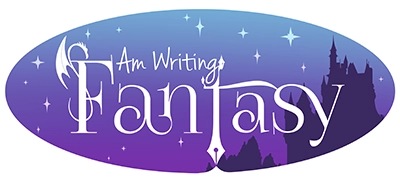I rarely suffer from prolonged periods of stalled writing where ideas hide in corners, and nothing will coax them closer than a fleeting glance before they are gone again. But I do suffer from hiccups: moments when I hit a wall with no visible way forward or when an idea dissolves under my fingers. And I’ve been writing long enough to find ways to overcome those writing blocks and keep moving because I’ve got lots of stories I want to tell!
And the good news is with lots of novels under my belt, and with over a million words written, I’ve figured out some techniques to keep the story flowing. Here are some symptoms and solutions to help you.
What You'll Learn
When the Story Suddenly Stalls
This happens when I think everything is moving along alright. I have a destination, events are building, and then… it just disappears. The action doesn’t feel right, coming across as too distant or forced. And that drags everything to a halt.
I’ve found this is often a plot or POV problem. If the action isn’t feeling immediate, I might be in the wrong POV for a chapter. Sometimes I realize that I feel pulled to ‘speak’ as another character while the one I’m trying to write in is a horrible, slow process. I usually take stock of what is happening and if switching character POV is the best option. That can get things moving again.
But other times, it is plot related. Too much tension or action can be as flat as not enough. Maybe the story needs a break or some comic relief. People react oddly in the face of adverse situations. My family managed laughter and tears at my brother’s funeral. It happens. A quick chapter or scene that breaks escalating events can be a relief to the writer AND the reader!
Or there simply could be too much action in one chapter. Sometimes events are too big to fit into one section without feeling numb from being hit over the head by event after event. That happened to me when I was writing Spirit of Life. The final action sequence was slated for three chapters. I had a horrible time writing it, and hated it when done. Until I gave it the space it needed, which ended up being seven chapters! Working on the Battle for Europe towards the end the same thing occured. Two chapters became four, but I also removed a meaningless/duplicative chapter later.
Playing with the plot timeline, especially as I do with quick chapter outlines before I write, helps align action, events, and POV. I play with ideas until things line up and feel right.
Can’t ‘See’ What is Happening
I tend to write in ‘deep POV’, seeing events from a character’s limited view. But there are times I don’t settle into a character’s mind perfectly, and there are certainly a few characters I have that I don’t relate with well. You know, the ones that if I were locked in a room with them, I’d write them out of existence!
I usual struggle through these bits, writing meaningless dialogue and painfully detailed minutia of unnecessary moments until my typing turns into “Blah, blah, blah, this is boring!” Seriously, I type that. And laugh. Then I take a breath and refocus. I’m simply not in the character’s head. If I were, and when I am, events and dialogue unfold naturally like I’m watching a play, one that I’m also trying to write down at the same time. But if I’m not clicking with a character, that doesn’t happen.
So I review what is going on in that character’s life. What led them to this moment? I’ll write a few sentences of what they are experiencing, thoughts or emotions, anything to connect with who they are. That usually pulls me into their world and makes me care about their motivations, even if in my day to day life I’d find them despicable. But it isn’t my life, it’s theirs, and I need to tell their story the best I can. Once I slip into their skin, the story takes off again.
Missing Something
I need that next sentence of dialogue, the motivation behind an action, an action that leads to the big event… but it just isn’t there. I’ve found the best resolution for this is to take a break. That is a touchy decision, though. There is a fine line between procrastination and needing to unleash an idea from the subconscious.
If things have been going well but I hit a sudden dead spot that won’t fill easily, I’ll walk away. Sometimes it is to put on the kettle, sometimes a walk in the woods, washing dishes work too. Movement, especially something that doesn’t require a lot of concentration so your subconscious thoughts will rise easily, can help jar that missing element loose.
But if the whole story has been grinding and I’ve been hashing at it for less than half an hour, no break. Certainly no quick check of book stats, Twitter, or FB. Those are abysses of distraction. Don’t go there.
Instead, I’ll pull out a notebook and start scribbling the questions locking my mind from writing. What is the hangup? What problem needs to be solved? Often writing down the questions will lead to the answers, sometimes with pacing, sometimes just be reading over them and reviewing the plot threads.
These are the ‘aha!’ moments when plot holes fill and everything clicks into place. And, for me at least, walking away is invariably the moment when I realize what I’ve been looking for. Especially if I’ve just gone through a trying hour of bogged writing only to put everything away to cook dinner. THEN the ideas flow. And dinner is either later or burned. I just have to write them down while they are fresh! 😉
Those are the big hang ups in my writing and the solutions that work for me. What stalls you when you write and how do you overcome it?











0 Comments